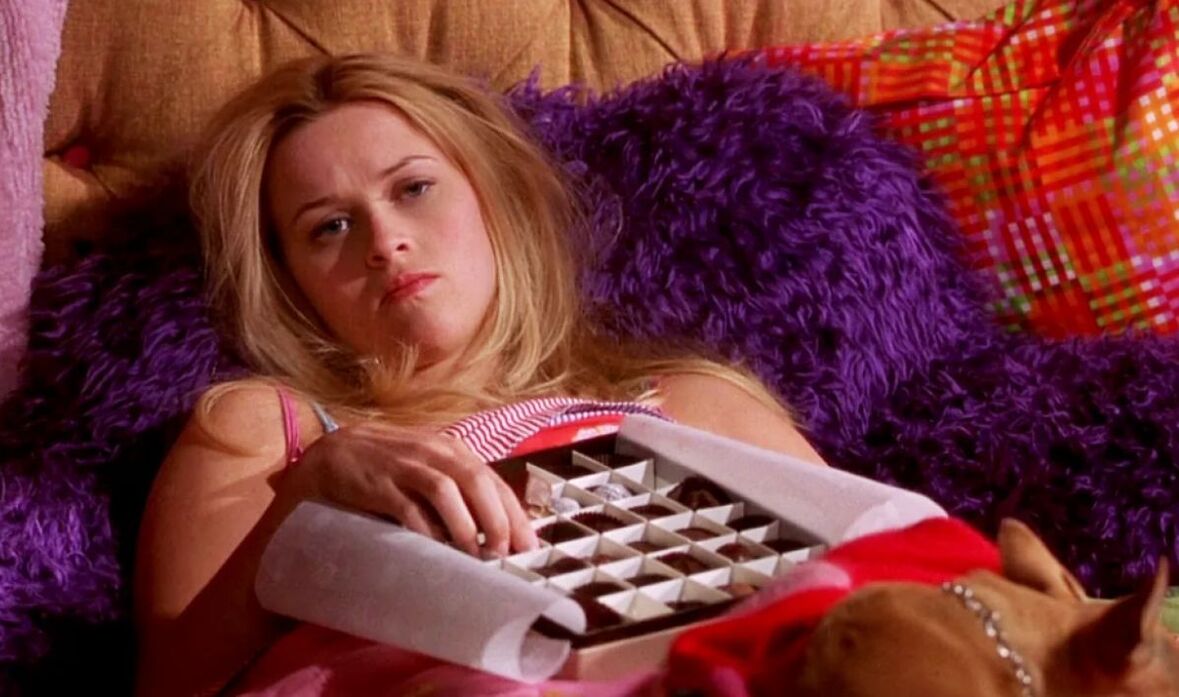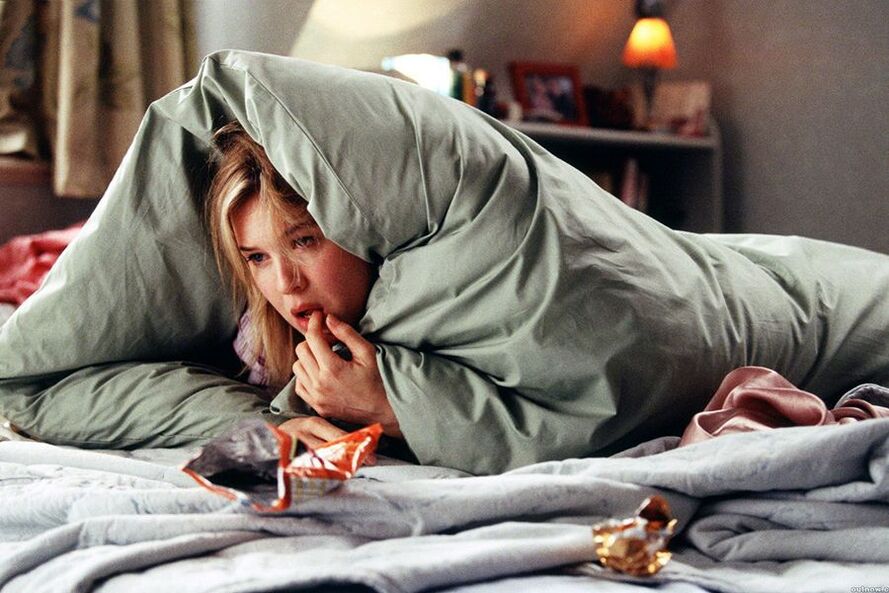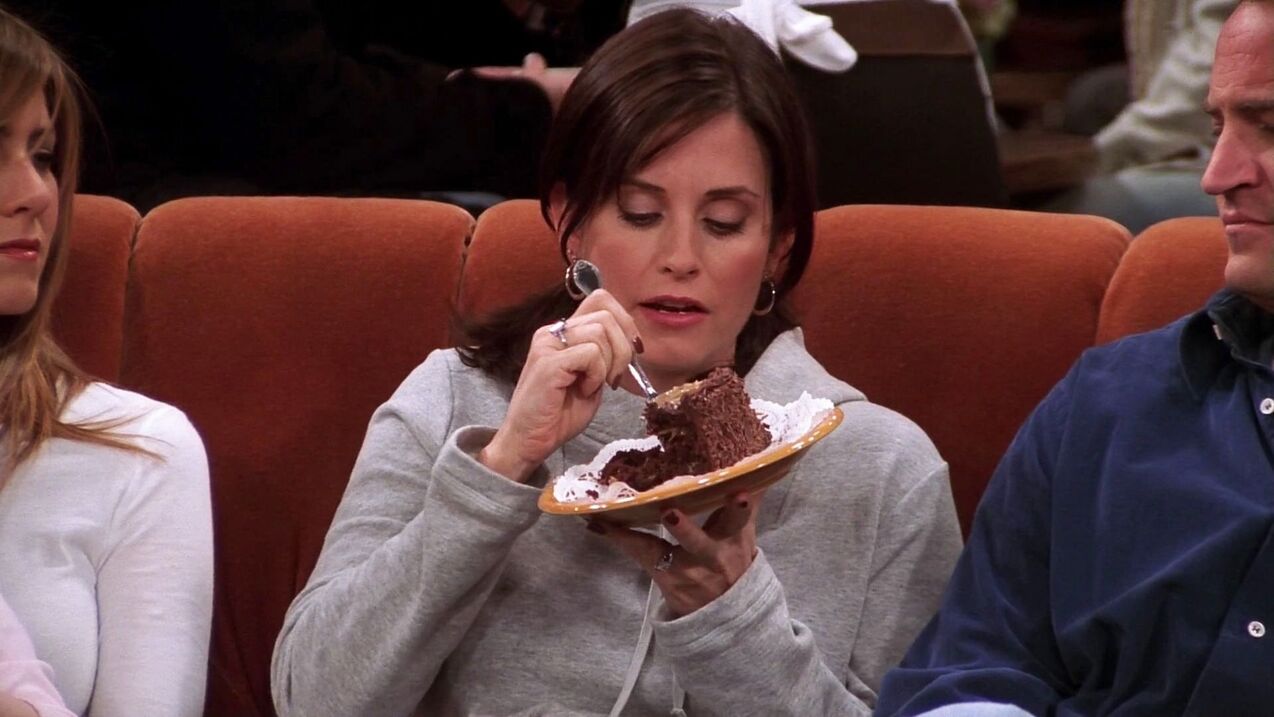
The title contains the most popular queries on search engines. But this article isn't going to offer advice like "count to 10 and drink a glass of water. " Let's talk about something else: why forcing yourself not to eat to lose weight is a bad idea and how to deal with your attitude towards food.
What's wrong with not eating to lose weight?
Psychologist: If you have a healthy attitude towards nutrition, then you are in touch with your body - you hear its signals and know how to negotiate with it. If your body signals hunger, you satisfy it; full, you stop eating. The message "don't eat to lose weight" implies this disconnection, confrontation with oneself and the manifestation of automatic aggression. It turns out that in order to achieve your goal (weight loss), you take action on yourself. It is not goodHIdull and unhealthyHIin.
Psychiatrist: Most people who have lost weight as a result of a strict diet gain it back within 1-2 years. Moreover, 2/3 of them gain more than they lose.
Endocrinologist:The message to force yourself not to eat to lose weight is irrational. It is important to understand: what happens to the body? Perhaps this is not a matter of improper diet, but hormonal characteristics.
And what is it all about - a healthy attitude to food?
Psychiatrist: This is when regular meals and snacks are not accompanied by anxiety, shame and guilt. Lack of "forbidden foods", diets and calorie counting. And when you allow yourself to enjoy the food.
Endocrinologist:It's about treating food as a condition for a fulfilling, happy life. And not as a substitute for joy and fun.
Psychologist: This is when you eat because you are hungry, stop when you are full, do not focus on the shortcomings of your body, which must be "fixed" with food or rejection from it, when you do not overeat, do not be provoked by emotions.
Can you give it more detail? How and why do we feed on emotions?
Psychologist: There are no emotions that are good and bad for the soul, can overcome anything. He doesn't need food, alcohol, gadgets or TV for this. But there are situations when a person drowns his emotions with food. Annoyed, I ate a bowl of ice cream - it just got easier. The behavior gets positive reinforcement, and the person begins to use this strategy over and over again.
Consultant psychologist:Often, people overeat due to lack of rest. Let me give you an example. A young woman comes with a problem: in the evening she eats a lot and can't help herself. It turns out that she works for three people, because she doesn't know how to turn down a co-worker. No time to eat: round the clock business. And at night he could not eat. That is, a person spends himself, overworked, is under stress all the time. How to replenish lost energy? Burgers, potatoes, chocolate.
It turns out that if a person eats when he is bored, anxious, angry, tired or sad, is that wrong?
Consultant psychologist:In and of itself, this is neither good nor bad: food is subconsciously associated with safety. For newborns, food is not just food, but closeness to the mother, serenity, confidence, acceptance, love, communication. Adults also sometimes eat to cool off. It's bad when it's the only way to deal with anxiety or fear.
Psychiatrist: With food we meet different psychological needs. For example, having dinner with the family is intimacy. Going to a restaurant with friends closes the need for social interaction. Problems arise when food underpins our negative experiences. This brings us to the topic of eating disorders (EID) or eating disorders. Psychiatry deals with this problem.
Wait! Wait! It turns out that if I eat a bar of chocolate after work and feel guilty - is this already a disorder? Should I go straight to a psychiatrist?

Psychologist:Complex problem. There are situations when a person eats on the run, chaotically, not paying attention to what he is eating. Or he eats when he's not really hungry - out of boredom or for company. It may just be an eating disorder that can be corrected by a dietitian. But, at the same time, eating out of hunger is one symptom of RIP. The line is very thin. And only a doctor can determine that. In our country, a psychiatrist is involved in this.
Endocrinologist:It happens that a person is constantly sad, worried, tired - and takes advantage of this problem. Perhaps this is the result of constant stress. But they are also symptoms of endogenous depression and anxiety neuroses. A psychiatrist is also involved in the diagnosis of such conditions.
But isn't ERP - Bulimia and Anorexia? Symptoms are hard to confuse
Psychiatrist: Not just bulimia and anorexia. Eating disorders also include psychogenic overeating (also called paroxysmal or compulsive eating), eating inedible foods (Pick's disease), and psychogenic loss of appetite. It is a disorder that belongs to the International Classification of Diseases (ICD). However, there are disorders that are not included in this list, but also attract the attention of psychiatrists: selective eating disorders, orthorexia (when the desire for a healthy lifestyle exceeds all limits) and pregorexia (strictly strict diets in pregnant women) .
Psychologist: Psychology also distinguishes Overeating Syndrome (BOE): when a person barely eats the whole day, can't sleep for a long time, or wakes up frequently and, getting up, goes to the refrigerator.
Is obesity also an ERP?
Psychiatrist: Not always. There are many reasons - this is genetics, and a sedentary lifestyle, and hormonal disorders. It is impossible to equate RPP with obesity.
Psychologist: Yes, I agree. There are people with truly healthy eating behaviors who are obese. And it happens the other way around - for example, patients with anorexia nervosa.
Heard that RPP issues are mostly about women, teenagers and models? That's right?

Psychiatrist:Of course not. This disorder can develop at any age in both men and women. For example, selective eating disorder most often occurs in children who eat only certain foods.
Psychologist: Anorexia and bulimia are more common in women. But compulsive overeating - the same in men and women. So it is impossible to say that RPP is a purely women's problem. And yes, teenagers, models, athletes engaged in aesthetic sports (rhythmic gymnastics, figure skating, dance sports), TV presenters, bloggers, actresses - everyone whose looks and work depend on risky looks. However, this problem can happen to anyone, including those who are far from the modeling business or beauty blogging.
It is believed that any nutritional problem is an attempt to attract attention. This is true?
Psychologist: There is such an opinion, but it is not scientifically proven. Yes, during therapy, it turns out that RPP starts when the person is not accepted by their peers. For example, for girls aged 13-15 years, it is important that boys see them and their friends agree with them, so that she goes on a strict diet. It also happens that problems with food are an attempt by the child to attract the attention of parents, often unconsciously. But this is a rather special case. It is wrong to think that the need for attention is a major cause of eating disorders.
So what's the reason?
Psychologist: There are three groups of reasons: biological, psychological and social. Biological - for example, genetic predisposition to RPC - unfortunately, can be inherited. Psychological - domestic violence, prohibition of the expression of negative emotions, violation of parent-child attachment (for example, if the child has cold and aloof parents). Social - cult ideals of beauty, thinness, intimidation.
PsychiatristA: There are certain personality traits that can contribute to the development of EID, such as perfectionism or hyperresponsibility. The peculiarities of eating behavior in the family, attitudes to weight and figure also affect. The child can be rewarded with candy for good behavior and learning, and it's stuck: because I'm nice, you can take candy. Very well? I'll take ten.
Consultant psychologist:Many patients with ECD have experienced physical or sexual abuse. Also for many people, food helps derive secondary benefits from the situation. For example, one of my clients needs weight to protect herself from men. During therapy, we found that at school age the girl was in an unpleasant situation with an adult man. The client was surprised that he remembered this: this story seemed "forgotten", but continued to influence the behavior of the girl in adulthood. They also expressed the belief that men only like slim ones. If so, the extra weight helps her to be "safe", that is, without men.
How common are eating disorders in society?

Psychiatrist: The prevalence of RPC in the world is estimated to be around 9%. In the risk group, the prevalence was higher. There is a study of adolescent girls that reports that by the age of 20, about 13% have symptoms of CRP. Anorexia is one of the deadliest mental disorders, in front of just chemical addiction.
Psychologist: It is difficult to give exact figures, because people with PAD often do not understand at all that they need help. There are figures for the United States, because it is the center of eating disorder research and statistics: there are about 30 million people living with eating disorders. There are twice as many women as men (20 million versus 10 million). And every hour in the world at least 1 person dies from RPE.
What are the symptoms of RPE? Can I diagnose it myself?
Psychiatrist: In general, the main symptoms are as follows:
- A person makes himself vomit after eating or compensates for what he eats in other ways, for example, excessive physical exertion (physical tyranny), laxatives and diuretics.
- Strong fixation on weight and numbers (you can't add/lose a gram or a centimeter! ).
- Various attempts to reduce body weight and weight swings.
- Various many rules in nutrition (I only eat protein, only vegetables, only red).
- Constant thoughts, fears and feelings of guilt and shame related to food intake and weight. When thoughts and behaviors related to food bring a lot of suffering.
- Loss of control over the amount eaten.
But many may have such symptoms to varying degrees. Is there a more accurate diagnosis?
Endocrinologist:RPD is a systemic chronic disease. It causes metabolic changes in systems and organs, changes in human neurohumoral regulation. This is a complex problem that can manifest itself in neuroses, organic brain pathologies, organic lesions, and depressive disorders.
But first you need to determine the cause of the symptoms. For example, if a person runs to the refrigerator at night, you need to know the glycogen level to exclude insulin resistance and type 2 diabetes mellitus.
What if you understand that you or a loved one has RPP?
Psychologist: If ever - consult a psychiatrist for a diagnosis. If you suspect RPP in a loved one, it's even more difficult: he often refuses, doesn't want to admit that something is wrong with him. And unnecessary pressure can break trust. Let your loved ones know that you are by their side, ready to help and support.
Who Treats ECD? Just a psychiatrist?
Psychiatrist: No. Psychiatrist diagnosis. And he cures, depending on the disease, a psychiatrist, psychotherapist, clinical psychologist (as the psychotherapist prescribes). Why is it so important to see a psychiatrist? Because it can reveal comorbid conditions such as depression or anxiety disorders, which are found in about 80% of cases in patients with RPD. Treatment depends on the severity of the disease. This can be drug therapy in combination with psychotherapy (group, cognitive behavior, dialectical behavior). Family therapy is also recommended.
Consultant psychologist:Anorexia and bulimia are treated primarily by psychiatrists. Emotional overeating - psychologist, counselor psychologist. Obesity - nutritionist-endocrinologist (you need to check hormones, whether the metabolism is disturbed) together with a psychologist or psychotherapist.














































































